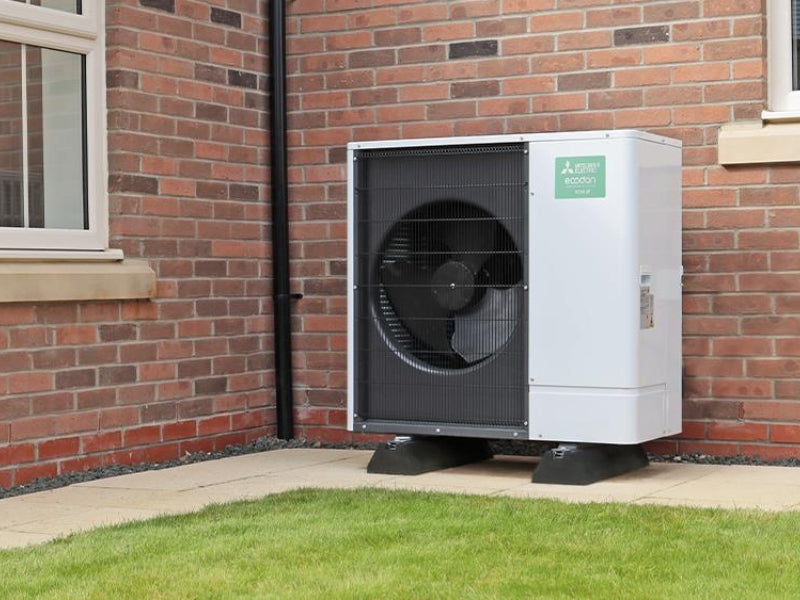Air Source Heat Pumps at Bassetts Northern Ireland
Thinking about incorporating an Air Source Heat Pump into your home design? Our specialist heating engineers are on hand to chat you through any questions. Give us a call today.
Get in touch with our experts Book a consultation
What is an air source heat pump?
Air Source Heat Pumps absorb heat from the outside air to heat your home and hot water. They are a greener, cleaner alternative to gas and oil, and can extract heat from air temperatures as low as -15°C!
Self-builders everywhere are falling in love with Air Source Heat Pumps. Your dream home deserves a heating system that fits your lifestyle. Studies have shown that Air Source Heat Pump and underfloor heating work excellently together in order to achieve cost-effective, environmentally-friendly and cosy warmth day after day.

How do they produce heat?
An Air Source Heat Pump uses energy absorbed from the air and transfers it to the water based heating system via a vapour/compression cycle.
The process uses a refrigerant gas R32/R290 which has a low boiling point. When the R32/R290 gas is exposed to external air it heats up and compresses causing the temperature to increase. It then changes from a gas to a liquid before passing through a heat exchanger transferring heat to the heating system. As the heat is transferred to the heat exchanger the liquid changes back to a gas and the cycle is repeated.

Knowing what pump to choose?
Our heating design engineers have over 40 years of experience warming homes across the country. After researching numerous types and models of Air Source Heat Pumps, we are proud to have partnered with the best manufacturers and totally trust the brands that we stock. We are on hand to fulfil all of your home heating needs.
Questions about costs, installation or which brand of Air Source Heat Pump is right for you? Send us an enquiry below and our team of heating experts will be in touch.

